Hi Sweet Friends,
Well, it’s late January, so I’m guessing that more than a few of you have slipped on your New Year’s resolutions (me too!). First of all—no biggie. If the goals you made while ringing in 2014 are still important to you, keep moving toward them one step at a time. Turtle power! But if you haven’t pinpointed what you want to do to improve your health, you’re not alone. Many of my readers are overwhelmed.
I get this question almost daily, “There are so many healthy habits to choose from—which one should I tackle first?”
Translation: What will make the biggest difference in my health TODAY.
Of course, green juices and smoothies are my numero uno recommendation, but second is always… dumping dairy. That’s right, go dairy-free.
You’re gonna learn a lot about dairy in a minute, but here are a few of the main reasons I removed it from my diet. Dairy is high in saturated fat (which can lead to stroke and heart attacks), it’s highly inflammatory (the root cause of many chronic diseases), and the growth hormones in dairy (ex. IGF1) can stimulate malignant cell growth and proliferation (because I have cancer, that’s a big NO thanks!). I know from personal experience, and from thousands of emails, Facebook comments, and tweets, that saying adieu to dairy can totally transform your health. So even if you’re not keen on ditching your milkshakes and brie today, I invite you to learn a little more about this bovine beverage. Even lessening the amount of dairy you consume can make a difference in how you feel.
How Dairy Impact Your Health
(excerpted & updated from Crazy Sexy Diet and Crazy Sexy Kitchen)
A cow drinks cow’s milk when it’s a baby. A bunny drinks bunny’s milk when it’s a baby. Beyond a certain age, even they know that it’s freaky to suckle. And do you ever see them switch and swap? The only time milk is essential for good health is when we are babies, being breastfed by human mothers. Human breast milk is nature’s perfect formula for human babies. It’s rich in good fats like DHA for brain development, but it’s relatively low in protein. Cow’s milk contains more than three times as much protein as breast milk. That’s because baby cows need a lot more protein. They grow to between 1,500 and 2,000 pounds. Is that your desired weight? If so, hello reality TV!
While the protein in human milk is designed for human bodies, much of the protein in cow’s milk is difficult for humans to digest.
In addition, the over-consumption of this protein can lead to serious health conditions. Dr. T. Colin Campbell, professor emeritus of nutritional biochemistry at Cornell University, found that the protein that consistently creates and promotes cancer is casein, which makes up about 87 percent of the protein in cow’s milk. According to Dr. Campbell, a diet that contains more than 10 percent protein (that’s about 50 grams of protein if you’re consuming 2,000 calories per day) can lead to the little “c.” Guess what? Americans eat way more than that (an average of 17 percent total protein, of which 12 to 13 percent is animal-based!).
Forget scary, life-threatening diseases, let’s talk about simpler pickles.
Ever pass a kidney stone? If you have, then you know that it’s incredibly painful—sorta feels like shooting an elephant through your pee hole! How about Crohn’s disease, a veritable inflammation blow-out sale? Both of these not-so-happy afflictions have been linked to dairy consumption. Allergies, eczema, asthma, arthritis, inflammation, and zits can all be linked to dairy. What about skim milk or nonfat milk? They’re just as bad. For me, cheese was the hardest thing to give up, but once I did, my weird rashes and forehead bumps disappeared. I also started to breathe easier—a pretty important change for a gal with cancer in her lungs. Perhaps this is too much information, but my poop changed, too. It came out regularly!
How about tummy pain, gas and bloating? Well, there may be a good reason for your belly’s aching. According to the American Academy of Family Physicians, around 75 percent of the world’s adults can’t digest milk (they’re lactose-intolerant). Among some populations, such as Native Americans and Asians, the figure is over 90 percent. Beyond childhood, most people stop producing the enzyme lactase, which is needed to digest lactose (the sugar in milk). Yeah, your body thinks you should wean, too. I’ve never met someone who didn’t feel better once they removed dairy from their diet. Sorry folks, but all good things come to an end.
Beyond Pasteurized Cow’s Milk
After reading your comments on this blog, I realized that a lot of my readers are curious (and passionate) about raw cow’s milk, goat’s milk and sheep’s milk. I checked in with my resident RD, Jennifer Reilly, to get the scoop on the other animal-based milk options on the block. Here’s what she had to say:
Raw Cow’s Milk: Many foodies and natural health advocates have been singing the praises of raw cow’s milk compared to pasteurized cow’s milk for some time. They claim that raw milk has more digestive enzymes (including lactase which breaks down the milk sugar lactose), more probiotics, more immune-boosters, and a richer supply of vitamins and minerals, which are otherwise killed during the heating process of pasteurization. Very little scientific research has been done to confirm or dispute these claims, although there are plenty of raw milk advocates who are positive that their allergies diminished, asthma improved, and lactose intolerance disappeared once they switched to raw cow’s milk.
Raw cow’s milk may be a step up from pasteurized cow’s milk as the raw version is often from cows only fed organic grass and not treated with antibiotics or artificial hormones. But, keep in mind that without pasteurization, raw cow’s milk is still rich in inflammatory and allergy-potential casein (milk protein), contains potentially cancer-causing Insulin-like Growth Factor 1 (IGF-1) (and its consumption also causes an additional production of IGF-1 in the human body), natural hormones, and without pasteurization, raw cow’s milk contains human pathogens which are of particular concern to food scientists, including Salmonella, E. Coli, and Listeria (see abstract here). These pathogens are especially risky for folks with compromised immune systems.
Goat & Sheep Milk: People are also turning toward milk from goats and sheep as alternatives to cow’s milk, and here’s why. Both goat and sheep milks have less lactose, so digestion is easier for humans compared to cow’s milk. Goat milk is closest in structure to human milk and is slightly alkaline, whereas cow’s milk is slightly acidic. Both sheep and goat milk contain a greater percentage of medium-chain fatty acids compared to cow’s milk which makes them naturally homogenized and easier to digest aside from the lower lactose content. To me, goat and sheep milk seem like a better option. But remember, you’re still getting casein and growth factors which may have a negative effect on human health. So if you’re consuming any kind of dairy, choose the best sources and do so in moderation.
Thanks, Jen!
Now, onto one of the biggest questions about living dairy-free…
But, where will I get calcium?
This is probably the most frequently asked question when talking about going dairy-free. Good news! Nature’s best calcium sources are dark leafy greens such as kale, collards, mustard greens, and turnip greens. The calcium in these foods is absorbed at double the rate of dairy calcium. About 30 percent of dairy calcium is absorbed whereas about 60 percent of calcium from dark leafy greens is absorbed. Other rich plant sources of calcium include beans, almonds, figs, and fortified nondairy milks such as unsweetened almond milk, oat milk, hemp milk, and rice milk.
When it comes to bone health, calcium isn’t the only factor.
Overall diet and activity levels determine bone health and even calcium needs. Countries with the highest calcium intake have the most osteoporosis, so there’s obviously more to the bone-health story than calcium alone.
Here’s another helpful factoid, vitamin D—which is necessary for calcium absorption and is best obtained from 20 minutes of sunshine 3 times a week during summer months and fortified, nondairy foods or supplements during winter months—is now being considered the most important nutrient in bone health. Bottom line: A diet rich in plant foods easily meets calcium needs. Check out this handy infographic for even more info on your calcium needs and plant-based sources.
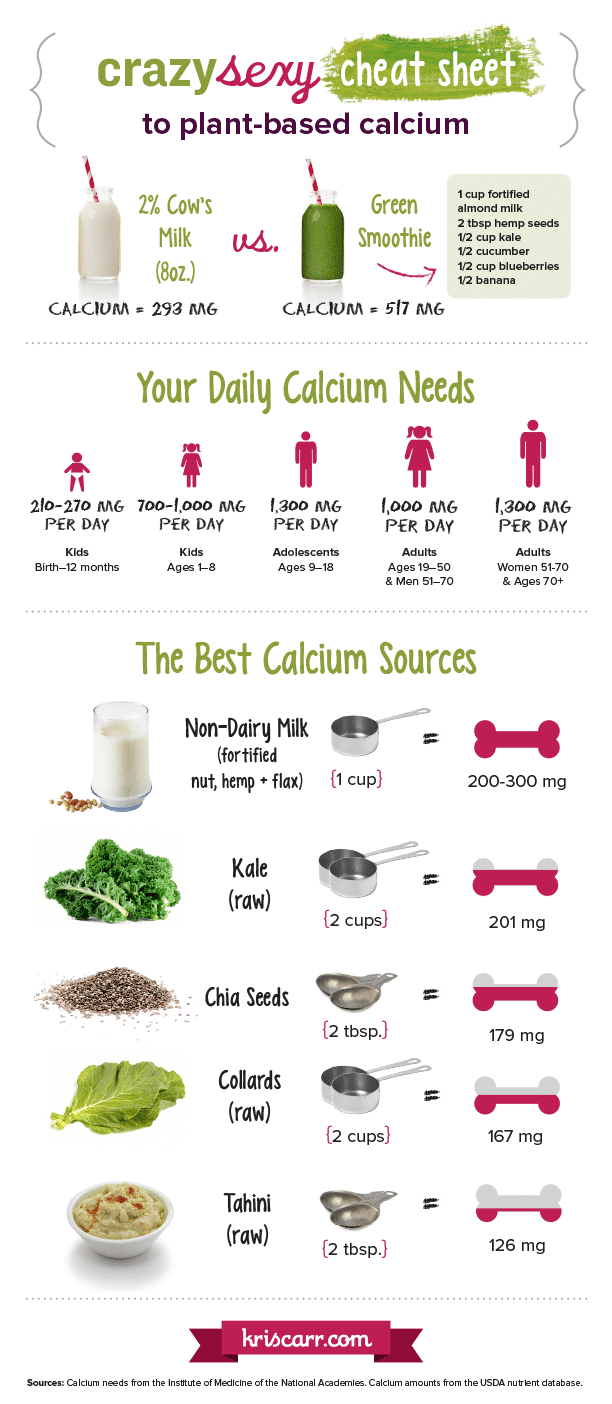
Dairy Free Alternatives
Going dairy-free doesn’t mean deprivation, it just means trying new things! Nowadays there are so many options that are just as good as the “real” deal. To learn about my favorite store-bought dairy alternatives, take a peek at my pantry and fridge. But when you get down to it, the real magic happens in the kitchen. Did you know that you can make your own moo-less cheeses, creams, milks and spreads at home? Plant-based, whole food recipes are easy and way healthier than the store bought stuff. And since I want you to taste this dairy-free goodness pronto, I’ve included some of my go-to Crazy Sexy Kitchen recipes for your enjoyment!
Dairy Free Diet Recipes
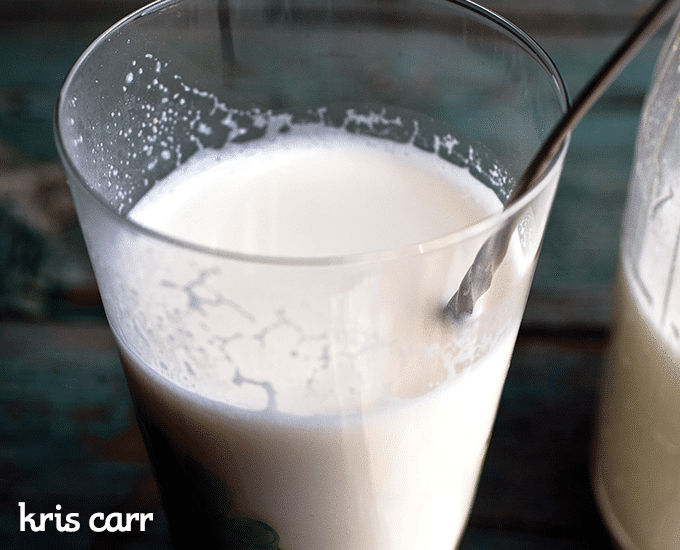
Basic Nut/Seed Milk (Crazy Sexy Kitchen)
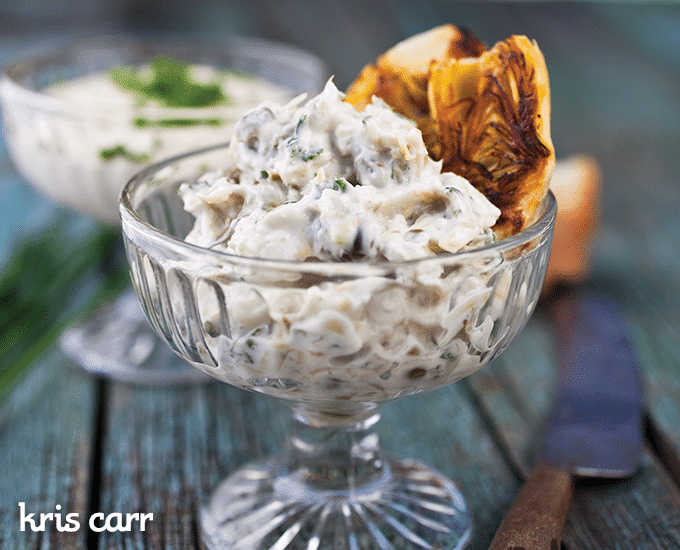
Artichoke Aioli (Crazy Sexy Kitchen)
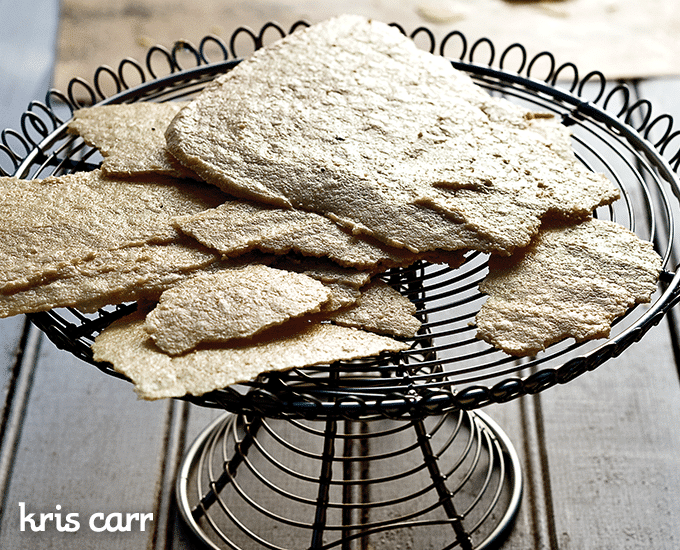
Truffled Parmesan (Crazy Sexy Kitchen)
Oooh, one last tip… Remember that most store bought alternatives are processed, so eat them in moderation or just use them as transition foods till your palate shifts. Also, when choosing these products, look for carrageenan-free, check out this comprehensive list.)
I hope this helps and as always, you don’t have to change everything at once. Slow and steady wins the race. But if you’re dealing with any inflammatory issues, this one recommendation may be the best place to start!
Now it’s your turn, have you seen a change in your overall health after removing dairy from your diet? What are your favorite dairy alternatives?
Peace & nut cheese,
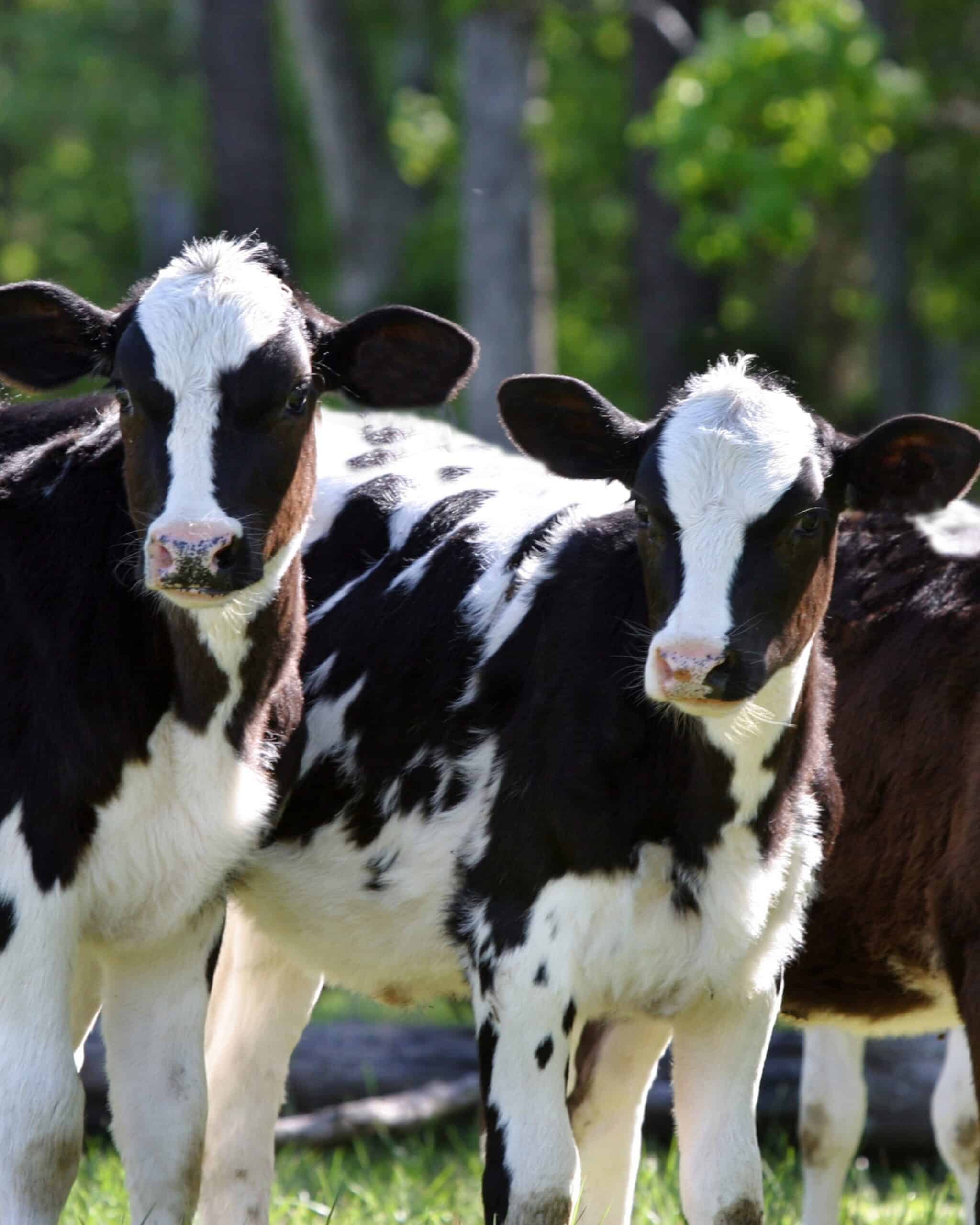


Thank you for the great comprehensive list of carrageenan-free food. I frequently use Kirkland Signature Organic Ricemilk since it is gluten, lactose and cholesterol FREE. The label also states it is vitamin and calcium enriched, USDA organic as well as unsweetened for the original variety. I was wondering if it is carrageenan-free, because sugar has 10+ different names is this ricemilk a winner?
Ingredients: Filtered Water, Partially Milled Organic Brown Rice, Organic Expeller Pressed Sunflower Oil and/or Organic Expeller Pressed Safflower Oil, Tricalcium Phosphate, Sea Sale, Vitamin A Palmitate, Vitamin D2, Vitamin B12, Folic Acid.
I went vegetarian a few months ago and then finally cut out dairy a few weeks ago! I feel amazing! I’ve noticed my cravings go away and I don’t even need alternatives, just whole plant foods. It’s been a great choice:)
Not everyone is the same. Giving up dairy did not make me feel better. I gave it up for a month, and found myself more sluggish, more gassy, and bloated as well. I don’t drink milk, but do eat dairy in cheese and yogurt. I also use whey protein ass a supplement.
I am fighting breast cancer and ostioperosis. I welcome any advice becaue I am trying to get started on a plant based diet. If after reading your article, what is the reseach on eggs? Thanks
Read “The Iodine Crisis” for information on breast cancer.
You mentioned to drink soy milk in moderation, is there another plant based milk that would be a better option than soy milk. I find almonds make me gain weight so is there something besides almond milk as well?
After suffering with ulcerative colitis for 5 years I made a major change in my life and became vegan. My doctors told me diet didn’t play a role in my illness, but in February I had my first CLEAN colonoscopy! Giving up dairy was harder for me than meat. The changes were amazing. Thank you for sharing your story and bringing great topics for viewers to read. Now I’m giving oil pulling a try. Thanks again for all you do.
Hola Kris sigo tu dieta 100% gracias por compartir toda tu informacion te pido tu ayuda tengo el mismo diagnostico que tu y estoy muy interesada en saber que otro metodo utilizaste para tu cura. me diagnosticaron hemangioendotelioma epitelioide en el pulmon e higado en junio del 2013 y desde entonces comenze a investigar todo de ti. espero me puedas ayudar con mas informacion te agradesco mucho. Saludos!!!
and to Billy from February 12th, here is something I found about meat myths and so on:
There are a lot of scientific evidence showing that eating meat increases the risk of cancer, heart disease, diabetes, osteoporosis and bone loss, arthritis, etc. Dairy is shown to increase the risk of cancer, infant apnea and crib death, autism, type 1 diabetes, postpartum psychosis, circulatory disorders, food allergies, etc.
Meat consumption strongly correlates with cancer:
http://www.ncbi.nlm.nih.gov/pubmed/1140864?dopt=Abstract
http://www.ncbi.nlm.nih.gov/pubmed/165553
http://www.pcrm.org/health/cancer-resources/diet-cancer/facts/meat-consumption-and-cancer-risk
Red meat increases risk of heart disease and cancer:
http://news.harvard.edu/gazette/story/2012/03/red-meat-raises-red-flags/
http://archinte.jamanetwork.com/article.aspx?articleid=1134845
Animal products linked to cancer:
http://www.pcrm.org/health/medNews/
It seems like almost everyone agrees a plant-based diet is key. Similarly, most agree that animal products from industrially-raised animals are not good for us or the environment. What is still unresolved is this question: Does the the inclusion of animal products from naturally-raised (i.e. pastured, grass-fed) animals, as a complement to a plant-based diet, boost health even further than a plant-based diet alone?
Yes, there are numerous studies that correlate animal product consumption with ill health. I am not aware of studies that show that consumption of animal products causes ill health (although I wouldn’t be surprised if industrially-raised animal products do). Correlation does not equal causation. We need more well-designed research to tease these issues out.
I think we do well to focus where much of the health community agrees: Plant-based diets are essential to health. But until we have better science, we should be careful about throwing the baby out with the bath water by demonizing animal products. The ancestral track record is that animal products have historically been very important to human vitality. Once we parse the industrial from the more traditionally raised, that may still be true, and may prove to be an essential part of human health.
Lastly, I agree with above comments: Stating that saturated fat leads to coronary problems and stroke makes this article seem out of date.
Almost all in my family has a genetic disorder concerning flexibility of hands and feet (usually stiffen as we get older). We can live and go about as usual but if we walk too much we might feel pain and stiffness, but this doesn’t count for my part. I’m the only one not drinking milk and I never have any pain or problem with the disorder. If I drink milk, I immediately feel more ‘heavy’, inflexible and I tend to get more coughs and a runny nose in the morning.
I am open to the idea that dairy is bad considering that virtually all of Asia and something like 1/3 of Latinos are lactose intolerant. Something is odd there.
However, you seem to indicate all proteins are bad, which is completely unfounded. It is also not true that animal fat causes heart disease and strokes and isn’t even the contributor to obesity that people once thought. The book “The Calorie Myth” just came out and cites a bazillion studies to the contrary, where the lies came that produced that (Ancel Keys) and the incredible good impacts meat can have on the body.
If anybody wants to be a vegetarian or vegan because animals are cute, then I support their decision 100%. But please be real that that is the reason you don’t eat meat (again, dairy might be different) and not fake science to back the claim you want to hear to keep me from eating meat.
What about yogurt?
I love this post Kris! The notion of dairy=calcium is one of the biggest misconceptions that I’m constantly trying to clear up for people. I should send them straight over to your site in future 😉
I always like to keep Almond Milk, Alpine Coconut Yoghurt, and Coconut Oil on hand at home as alternatives to ordinary milk, yoghurt, and butter.
Hi Kris! Has nothing to do with this but what do you feed your dogs? Following your diet and would like my dogs to do the same! Thanks
Great Article, I am a Physician and would like to point out that milk can actually cause osteoporosis. Children that drink lots of milk develop soft bones in a condition called milk-alkali syndrome. The Same problem happens in adults with the protein in milk causing blood to become slightly alkali and our body compensates by taking calcium from our bones. The irony is that people have been taught to drink milk for bone health and it is the direct opposite.
Great website keep up the good work.
jim
All dairy showed up in allergy tests I had years ago as a huge problem. I was sent for tests by our dr when I could sleep lying down and was itching nonstop. I had a rediculas amount of inhalors – I was a very fit and athletic build at the time! i took dairy out of my diet and improved in weeks. I now know if I have diary 2-3 hours later I will itch loads and will be very chesty. I often lose my voice as soon as I’ve had some – something I never chance eating now if im ill! It has given me control of my asthma knowing this and I can live my life far more freely. I recommend anyone who is unsure to try with out for a month and see. My energy levels went through the roof when I stopped having dairy.
Thank you Kris for making this world a more loving place. My son who is 14, has autism and is non-verbal is doing the same by publishing in Huff post! Please read, like, share!
http://www.huffingtonpost.com/laura-rossi-totten/avonte-oquendo-was-our-so_b_4669658.html?utm_hp_ref=parents&ir=Parents
I’ve given up dairy, glutin, & meat.. I feel great for the 1st 4-5 days and then I just crash again… Any suggestions?
This is a great post & I am glad I found you! For 7 years I have suffered from stomach pain (only hits at night & wakes me up) and have gone through every possible test (barium enema anyone? Lol!) and still don’t know the cause. Think I’ll kick dairy to the curb and see if it removes the fire. I would love any other tips from you or your readers on fighting inflammation.
Xoxo! You are amazing!
Catina 🙂
Thanks for the article! I have been dairy-free for almost two decades and don’t miss it. Could you please list your sources for the info in the article (regarding the casein-cancer links and calcium absorption rates for plants vs dairy)? Would be helpful in explaining to others my stance on dairy consumption.
Thank you!
Liz, I believe she is pulling that scoop from “The China Study”.
Hope that helps! 🙂
Catina
I LOVE Kris’ writing. Seriously. It makes me laugh every time. This article was great 🙂
I use almond milk to substitute dairy milk.